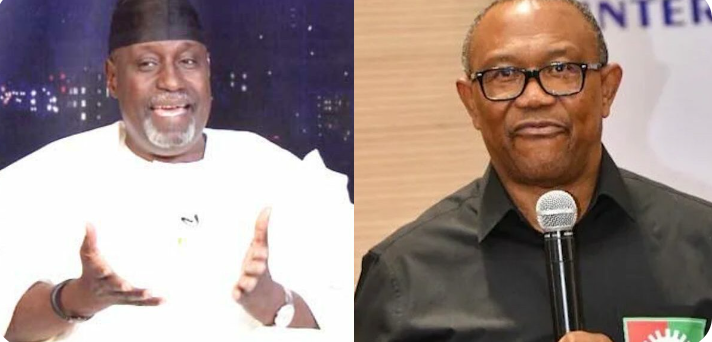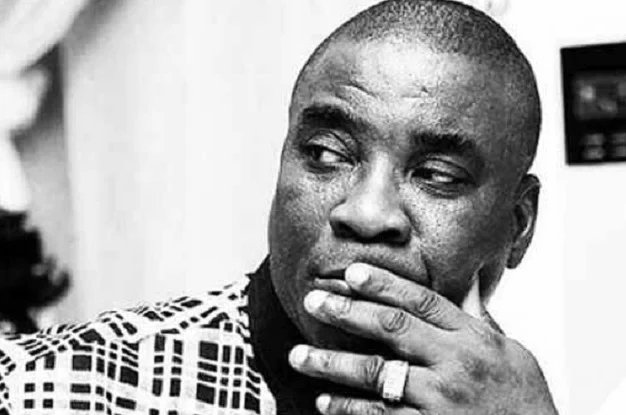
“Empty Words, Empty Promise” – Farouq Aliyu Shreds Peter Obi’s One-Term Pledge as Political Gimmick

The 2027 presidential race may still be a distant horizon, but the political battlefield is already heating up, with former Minority Leader of the House of Representatives, Farouq Aliyu, throwing a bold punch at Labour Party stalwart Peter Obi. During a Wednesday interview on Arise Television’s Prime Time, Aliyu dismissed Obi’s promise to serve only a single term if elected as president as nothing but “empty rhetoric” and a demonstration of political naivety. His stinging criticism has now sent ripples across the nation’s political sphere, igniting debates and drawing mixed reactions from both camps.
Peter Obi, former governor of Anambra State and the face of the Labour Party in the 2023 general elections, has repeatedly declared his willingness to serve only one term if given the opportunity to lead Nigeria in 2027. According to him, the singular term would be sufficient to lay a solid foundation for a “new Nigeria,” focused on good governance, transparency, and economic transformation. But for Farouq Aliyu, such statements are not just unrealistic—they are dangerously misleading.
“Sometimes when you’re out of office or when you’re not in the place, you’d not know. To me, it’s just rhetoric, and he’s also trying to convince people,” Aliyu said during the interview, suggesting that Obi’s claims are driven more by public relations tactics than by grounded understanding.
Aliyu, a senior figure within the ruling All Progressives Congress (APC), didn’t hold back in his takedown of Obi’s political vision. He painted the former governor’s pledge as the kind of wishful thinking that only someone detached from the realities of national leadership could entertain. “Obi is talking out of ignorance,” he declared. “He doesn’t know. States are different from Nigeria. When you govern a small state, the horizon of a state governor is not as wide as the horizon of a president.”
His words hit a nerve, especially among political analysts who view Obi’s proposal as both bold and unconventional. Yet, Aliyu insists it’s precisely that boldness that exposes Obi’s inexperience. He stressed that Nigeria’s leadership requires more than lofty promises and that national governance is an entirely different ball game compared to state-level administration.
In addition to criticizing Obi’s one-term plan, Aliyu also weighed in on the recently floated coalition between the Labour Party and the African Democratic Congress (ADC), a movement many see as a potential opposition threat in the 2027 general elections. For Aliyu, however, it’s a “noisemaking alliance,” one he claims is neither structured nor cohesive enough to pose any real danger to the APC.
“We respect them; we admire them as Nigerian leaders, but honestly, they don’t threaten us,” he said. “All of them are after us. So, we need to spread our tentacles to make sure we pour sand inside their gàárì.”
His metaphor may have raised eyebrows, but it clearly reflects the combative posture the APC plans to maintain as the 2027 campaign season draws nearer. Aliyu believes the coalition is plagued by internal contradictions and competing ambitions, which he says will ultimately lead to its collapse. “Virtually all leaders of that group want to be president; unfortunately for them, only one person can be president,” he quipped, hinting at what he described as a “coalition of egos.”
Obi’s supporters, however, argue that his single-term pledge is a testament to his commitment to change. In an era where political office is often viewed as a long-term entitlement, Obi’s promise to step aside after one term is seen by many as refreshing—an antidote to the greed and power-hunger that have long plagued Nigeria’s political landscape. But Farouq Aliyu is not buying it. He insists that such idealism does not hold up in the real world of governance, especially not in a country as complex and diverse as Nigeria.
While some members of the public see Obi as the face of a progressive future, Aliyu maintains that his appeal is rooted in ignorance of the bigger picture. He argues that the Labour Party’s emphasis on change is vague and that they lack a realistic roadmap to implement their ideas. He did concede that certain elements within the opposition movement make valid criticisms of the current administration, but was quick to add that “constructive criticism without cohesion is noise, not strategy.”
The Labour Party, on its part, has not issued an official response to Aliyu’s comments, but party insiders suggest that Obi remains focused on building a credible, issue-based campaign ahead of 2027. In several of his recent appearances, Obi has emphasized his desire to disrupt Nigeria’s political status quo with a short but impactful presidency that prioritizes institution-building and fiscal discipline.
But will Nigerians buy into that vision, or will voices like Aliyu’s succeed in sowing enough doubt to derail it before it gains momentum?
Political observers agree on one thing: the road to 2027 will be anything but predictable. As alliances form and rivalries intensify, Peter Obi’s one-term declaration is likely to remain a lightning rod for political discourse—an idea seen by some as visionary and by others as absurdly idealistic. Whether it will become a defining feature of the next election cycle or simply fade away under pressure from seasoned political heavyweights like Farouq Aliyu remains to be seen.
One thing is certain: the battle lines are being drawn, and rhetoric—empty or not—is quickly becoming the first weapon of choice.


